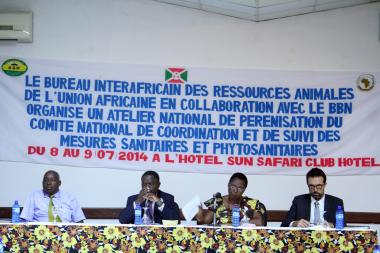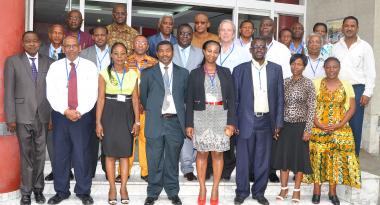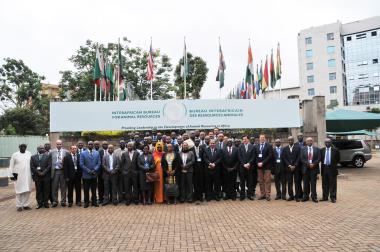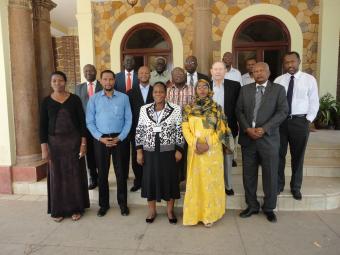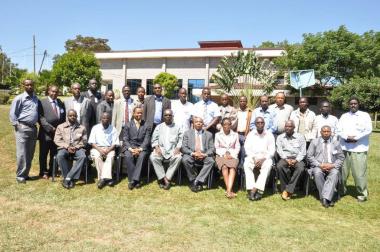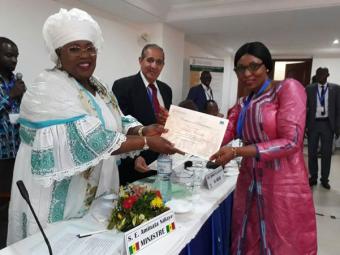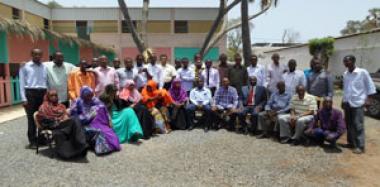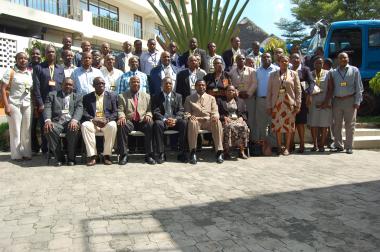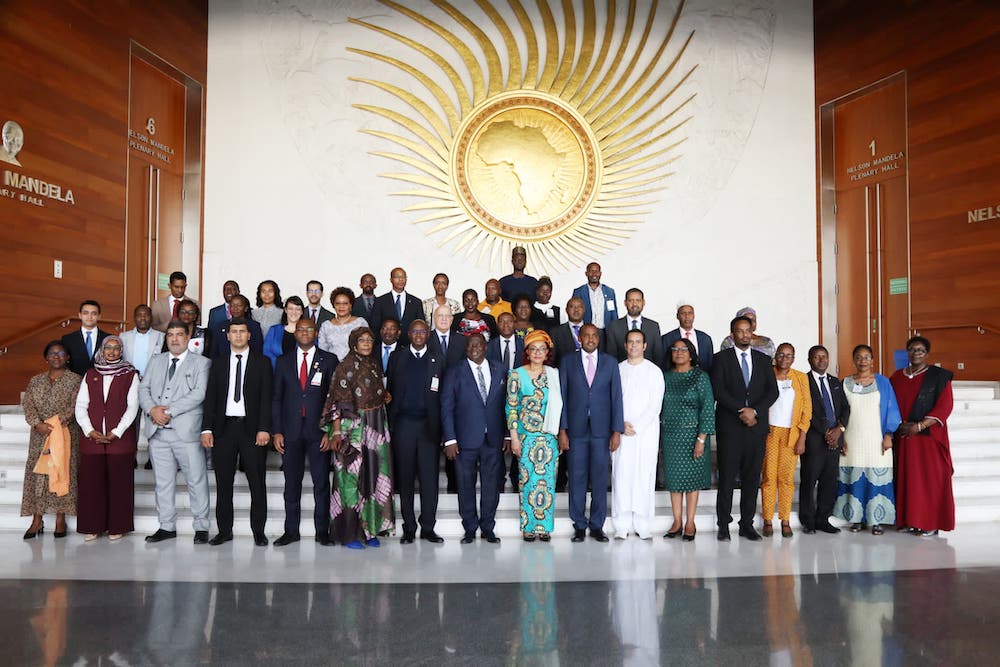
Addis Ababa, Ethiopia - November 17th, 2023
This week marked a significant milestone for AU-IBAR during the Fifth Ordinary Session of the Specialized Technical Committee on Agriculture, Rural Development, Water, and Environment (STC-ARDWE) at the African Union Commission in Addis Ababa Ethiopia.
AU-IBAR, operating under the Department of Agriculture, Rural Development, Blue Economy, and Sustainable Environment (DARBE) of the African Union Commission (AUC), presented 14 projects with recommendations and Policy guidelines. All reports were overwhelmingly endorsed by the African Union Member States. The following reports were presented:
Animal Health Unit
- Report Of The African Union Digital One Health Information Policy And Associated One Health Information Architecture Framework For Improved Digitalised One Health Governance And Management.
- Report On The Donkey Species Preservation In Africa: “Donkey In Africa Now And In The Future.
- Report On The 2nd Phase Of The Pan Africa Programme For The Eradication Of Peste Des Petits Ruminants And Control Of Other Priority Small Ruminant Diseases (2023-2027.
- Report On The Preparedness Of Africa For The Eradication Of Rabies By 2030.
Animal Production Unit
- Report On The Formulation Of A Strategy For Mainstreaming Gender In Conservation Of Aquatic Biodiversity And Environmental Management
- Urgent Actions To Address Feed Shortages And Avert Future Feed Related Disasters (RAFFS)
- Report On Enhancing The Effective Role And Participation Of African Union Member States In Continental And Global Aquatic Biodiversity Conservation And Environmental Management Related Fora Or Regimes.
- Operationalization Of The African Pastoral Markets Development (APMD) Platform.
- Improving Aquatic Animal Health And Biosecurity
- Report On Pan-African Platform Of Non-State Actors (NSAS) In Fisheries And Aquaculture Sector (Afrifish-Net).
- Aquaculture Network For Africa (ANAF)
- Framework For Harmonized Minimum Terms And Conditions For Fisheries Access In The African Union Member States
- Enhancing PPP In Fisheries And Aquaculture
- Strategy For Rational Management Of African Inland Fisheries
At the sidelines of the STC-meeting, AU-IBAR hosted a high-level side event with ministers from 6 AU member states: Cote d’Ivoire, Burkina Faso, Uganda, Somalia, Chad and Egypt. While Ministers from 6 countries: Kenya, Nigeria, Senegal, Gambia, Zimbabwe and Tanzania sent their representatives. This event sought to engage Ministers and experts responsible for Livestock, Agriculture, Fisheries and Aquaculture to provide valuable insights into AU-IBAR's mandate, strategic direction, and ongoing programs, aligning with the broader goals of the STC-ARDWE. Moreover, the event aimed to ensure the ministers were better informed about AU-IBAR's work and identify potential areas of collaboration.
Speeches from DARBE Commissioner H.E. Josefa Sacko and Dr. Godfrey Bahigwa, Director of Rural Economy and Agriculture (DREA) emphasised the critical role of animal resources in meeting CAADP and Agenda 2063 targets.
In her opening remarks, AU-IBAR’s Director Dr. Huyam Salih highlighted the importance of the meeting whose aim was to engage AU Ministers and provide insights into the reports that were to be presented during the STC-meeting to enable them understand and make well-informed decisions.
Dr. Salih pointed out significant contributions of the animal resources sector to the continent's socio-economic development, emphasizing that livestock, fisheries, and aquaculture are sources of income for a third of Africa's population. Nevertheless, there are challenges of low consumption of animal-sourced foods, a growing demand for these foods, the economic burden of animal diseases, and the impacts of climate change. Despite these challenges, she underscored the sector's vast opportunities, including a growing market for animal-sourced foods valued at USD 51 billion annually.
Having thanked the Excellencies for honouring the invitation, and for their support to AU-IBAR in carrying out its mandate in the continent, she noted that animal resources are a source of income, livelihoods, resilience and nutrition for Africa’s populations: “The sector provides huge opportunities given the significant consumption gap. This high-level will allow for a reflection on what can be achieved together through strategic interventions for the furtherance of the animal resources development in the continent.”
At the same time, Uganda’s Minister of State for Animal Industries Hon. Bright Rwamirama presided over the continental launch for the call for ‘Urgent Actions to Address Livestock Feed and Fodder Shortages and Avert Future Feed Related Disasters’ also known as the RAFFS project.
In his speech, he emphasised the significance of Africa's vast livestock resources to livelihoods and economies. He noted the crucial role of livestock in providing employment, supporting business, trade, and markets. Despite the potential of African livestock systems to thrive, they increasingly face global challenges such as geopolitical conflicts.
To address the pressing issues of livestock feed and fodder shortages and to prevent future disasters, Minister Rwamirama proposed urgent actions. He called for the development of Feed and Fodder Sectors as a strategic move. Policy reforms, dedicated budgets, value chain development, financing mechanisms, and investments in research and technology: “There should be an improved emergency response approach within the feed and fodder sector, the establishment of a continental African Alliance of Multi-Stakeholder Feed and Fodder Associations, and the institutionalization of a monitoring and mutual accountability framework,” He noted.
Urgent mobilization of resources to promptly tackle current and future feed and fodder shortages on the African continent and avert future feed related disasters is critical.
The Ministers present gave statements and responses about the project presentations, fostering discussions around these critical issues. The side event provided a platform for meaningful dialogue, strategic insights into AU-IBARs mandate.
The Fifth Ordinary Session of the STC-ARDWE reviewed AU-Member states progress, provided policy guidance, and made recommendations for the next two years.

